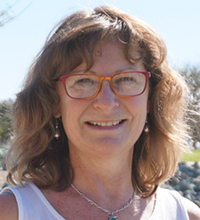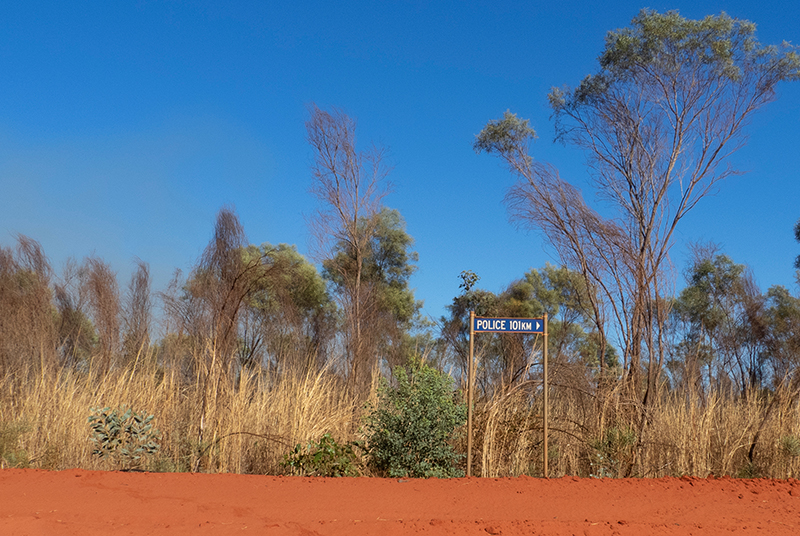Australians living in rural and regional areas are more likely to support tougher penalties for crime than those in the cities.
New research has found that while Australians generally support strong punishments, people living in the bush are significantly more likely than city dwellers to want to punish more harshly those who break the law.
It means Australians living in rural and regional areas are more likely to support tougher penalties for crime than those in the cities. However, it’s not for the reasons you might expect.
So, what drives this divide?
In short: fear of crime and a lack of confidence in the justice system. Our research, published in the Journal of Rural Studies, surveyed a representative sample of Australians to better understand their views on punishment and what shaped their views.
We found city residents with tough attitudes toward crime tend to focus on the individual and personal blame, thinking offenders commit crime due to internal attributes (such as having “a poor moral compass”). They tended to see lawbreakers as lacking the capacity to redeem themselves.
But in rural areas, people are more likely to focus on what’s happening around them. Specifically, we found support for tougher penalties for crime was related to wider concerns about rising crime rates and a general lack of confidence in the criminal justice system.
Consider the role of ‘rurality’
To understand these differences, we thought about how living in rural areas may shape punitive attitudes. Contrary to popular belief, crimes occur at higher rates in many rural communities than in some urban areas.
Crime may also be more visible and more confronting because towns are smaller. Personal relationships are denser, meaning people often know the victims or the offenders.
Crime may also be more visible and more confronting because towns are smaller. Personal relationships are denser, meaning people often know the victims or the offenders.
This closeness creates a stronger emotional response and a heightened sense of risk at the local level – even if the actual chances of being victimised are statistically low.
There’s also the issue of access to the criminal justice system. Courts may sit infrequently, meaning it can take a long time to get a case heard in court. In some cases, victims and offenders are forced to share courtroom space due to limited facilities.
Police stations might not be staffed around the clock. Add to this long wait times for justice, and it’s no wonder rural Australians may feel the system isn’t working for them.
The power of perception
It’s important to understand perception doesn’t always match reality. Urban areas often have more total crime, but rural areas may have higher rates of certain offences, especially violent ones.
But what really matters in shaping public opinion is not necessarily the total numbers, but how close, immediate and personal crime feels.
Other research has found people who feel crime is psychologically “close” – meaning, that’s likely to happen to them or someone they know – are much more worried about it.
That worry can translate into calls for tougher sentencing, stricter laws, and less tolerance for rehabilitation.
This fear is made worse by a lack of confidence in the justice system. Many rural residents feel the system is too slow, too distant, or simply doesn’t understand local issues.
Some research shows that rural residents may not have confidence in the police ability or capacity to solve certain crimes and that courts in general are too soft on crime.
When people feel justice won’t be done, they’re more likely to demand punishment that feels immediate and severe.
Why it matters
These findings are more than just a snapshot of attitudes; they have real implications for public policy.
Understanding this difference is key to building smarter, fairer justice policies, because when people feel seen, heard, and safe, they’re less likely to demand punishment to solve feelings of insecurity and more likely to support holistic solutions.
Politicians often draw on public opinion when shaping criminal justice policies. If rural voters are more likely to support tough-on-crime platforms, that can influence laws that affect the whole country.
But one-size-fits-all solutions won’t work. The factors shaping crime perceptions in Brisbane or Sydney are very different from those in Longreach or Wagga Wagga.
To build trust and improve safety, we need justice strategies that take into account local realities, especially in rural areas.
This means investing in better access to police and courts, improving communication between justice systems and rural communities, and helping the public understand what crime is really happening and what’s not.
Australians in rural areas aren’t more punitive because they’re harsher people. Our research shows they are more worried, feel less supported, and have less confidence in the system designed to protect them.
Understanding this difference is key to building smarter, fairer justice policies, because when people feel seen, heard, and safe, they’re less likely to demand punishment to solve feelings of insecurity and more likely to support holistic solutions.
What’s needed now
Rural communities need tailored strategies that improve access to justice, rebuild trust, and respond to their unique experiences of crime. That means policymakers need to go beyond reactive, headline-driven responses.
Rural justice strategies should include mobile court services, better resourcing for regional police and victim support, and culturally appropriate services for Indigenous communities.
Rural justice strategies should include mobile court services, better resourcing for regional police and victim support, and culturally appropriate services for Indigenous communities.
Community education campaigns can also help close the gap between crime perception and reality.
Importantly, involving local voices in justice reform, through consultation and community partnerships, can help rebuild trust and ensure policies reflect rural realities, not just urban assumptions.
As political debate over law and order grows, especially in rural communities, leaders must address the divide in how city and country Australians view crime and punishment.
This article first appeared on The Conversation, and is republished under a Creative Commons Licence; you can read the original here.
Picture © Marion Carniel / Shutterstock
About the Authors
 Caitlan Davey is a Lecturer and First Nations Scholar in the School of Criminology and Criminal Justice at Griffith University and serves as an Associate Researcher at the University of New England’s Centre for Rural Criminology. She holds a strong academic foundation in Psychological Science and Criminology, and her research is enriched by lived professional experience in both custodial and community corrections settings. She is currently in the final stages of completing her Doctor of Philosophy in Criminology at the University of New England, with her research focusing on public attitudes towards crime and punishment.
Caitlan Davey is a Lecturer and First Nations Scholar in the School of Criminology and Criminal Justice at Griffith University and serves as an Associate Researcher at the University of New England’s Centre for Rural Criminology. She holds a strong academic foundation in Psychological Science and Criminology, and her research is enriched by lived professional experience in both custodial and community corrections settings. She is currently in the final stages of completing her Doctor of Philosophy in Criminology at the University of New England, with her research focusing on public attitudes towards crime and punishment.
 Dr Kyle Mulrooney is a lecturer in Criminology at the University of New England and co-director of the Centre for Rural Criminology. His primary fields of research are the sociology of punishment and rural crime and society, in which he has examined issues ranging from penal populism and drug policy to the prevention and policing of farm crime. Kyle holds a PhD in Cultural and Global Criminology from the University of Kent and Universität Hamburg, an MA in the Sociology of Law from the International Institute for the Sociology of Law and a BA (Honours) in Criminology and Justice from the University of Ontario Institute of Technology.
Dr Kyle Mulrooney is a lecturer in Criminology at the University of New England and co-director of the Centre for Rural Criminology. His primary fields of research are the sociology of punishment and rural crime and society, in which he has examined issues ranging from penal populism and drug policy to the prevention and policing of farm crime. Kyle holds a PhD in Cultural and Global Criminology from the University of Kent and Universität Hamburg, an MA in the Sociology of Law from the International Institute for the Sociology of Law and a BA (Honours) in Criminology and Justice from the University of Ontario Institute of Technology.
 Dr Sue Watt is an Associate Professor in Psychology at the University of New England specialising in social psychology, and has studied prejudice towards several groups in Australia and overseas, focusing on the psychological underpinnings of these attitudes. She also conducts research on immigration, exploring the processes involved in adjusting to a new society, and has examined acculturation from the points of view of the immigrant and the receiving society. Her recent research investigates Australians’ attitudes to refugee settlement in regional locations, and their shifting attitudes over time as refugees become embedded in the local community.
Dr Sue Watt is an Associate Professor in Psychology at the University of New England specialising in social psychology, and has studied prejudice towards several groups in Australia and overseas, focusing on the psychological underpinnings of these attitudes. She also conducts research on immigration, exploring the processes involved in adjusting to a new society, and has examined acculturation from the points of view of the immigrant and the receiving society. Her recent research investigates Australians’ attitudes to refugee settlement in regional locations, and their shifting attitudes over time as refugees become embedded in the local community.


